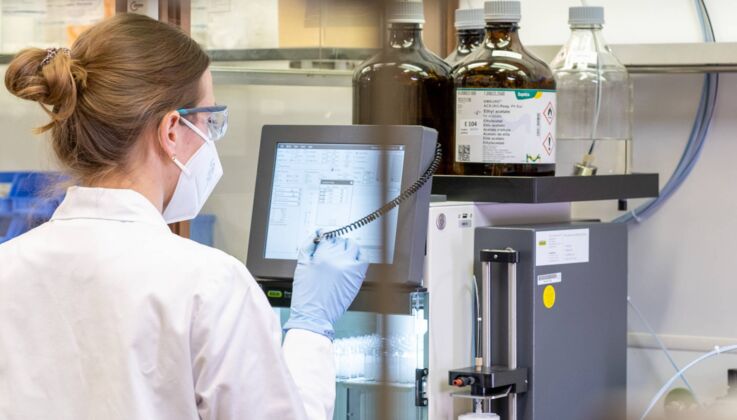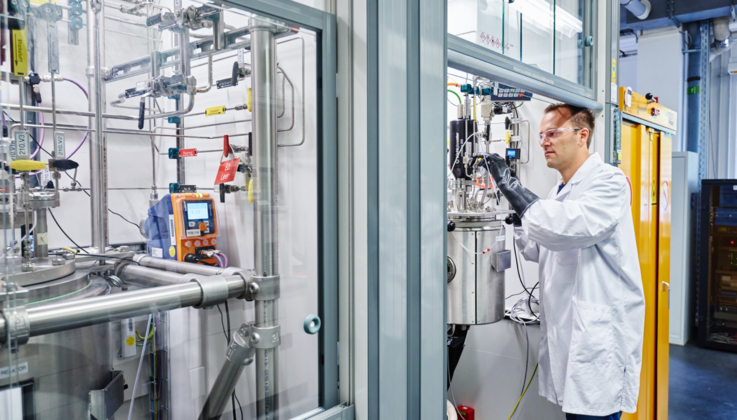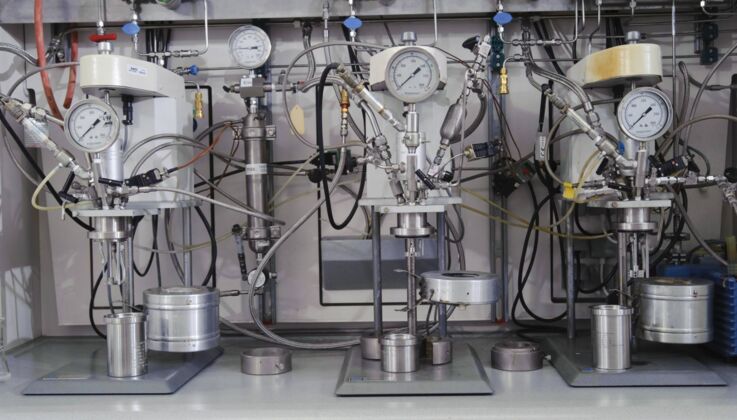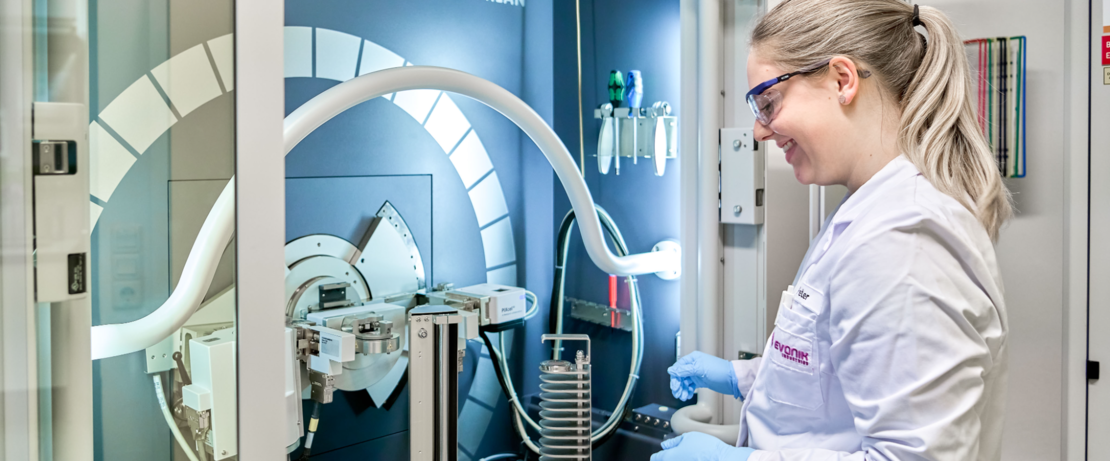
Your particle engineering partner for drug substance manufacturing
What is particle engineering?
Particle engineering is the controlled production of particles of optimized size, shape, and crystal structure to meet the properties desired. As a CDMO, we work with you to optimize and develop all unit operations in the drug substance manufacturing process in a holistic way across – from crystallization through to downstream processes like separation, drying and milling.
|
Our R&D and process development approach |
We focus on the crystallization step when we are working with you on the synthesis of an active pharmaceutical ingredient (API). This typically involves four key stages:
We take the fundamental solid-state data into account during process development. This could include investigation of thermodynamics, screening for solid forms, finding suitable solvents, creating phase diagrams, or selecting the targeted form for further development.
We clarify final product specifications and define target particle properties such as particle size (distribution), shape, roughness, and mechanical properties. We also align on the target yield, impurity profile, and potential solvates or polymorphic forms.
We identify which equipment is the best fit and which crystallization technology to use to obtain supersaturation is (e. g. concentration, antisolvent, cooling crystallization). We crystallize and isolate the desired polymorph or solvated form, improving the yield and obtaining desired purity. Ensuring PSD (particle size distribution) for further downstream processibility is also a part of this process.
We investigate factors such as equipment size and its effects on process parameters. We also investigate factors such as temperature differences, holding times, stirring, addition rates and mixing of antisolvent or bases/acids additions. We ensure that in a scaled-up process provides the same desired attributes like the scaled-down lab process.
Early-stage solid form selection
Taking fundamental solid-state data into account during process development is important. This allows us to select a suitable solid form and solvents for further development. We search for new forms and understand the stability and transitions between the known crystal forms.
We take the following drug substance properties into account:
- Crystal form – polymorphs, solvates/hydrates, co-crystals
- Crystal form properties – stability, dissolution rate/bioavailability, melting point, hygroscopicity
- Particle properties – particle size (distribution), shape, roughness, mechanical properties
- Bulk properties – bulk density, flowability, compressibility/tablettability
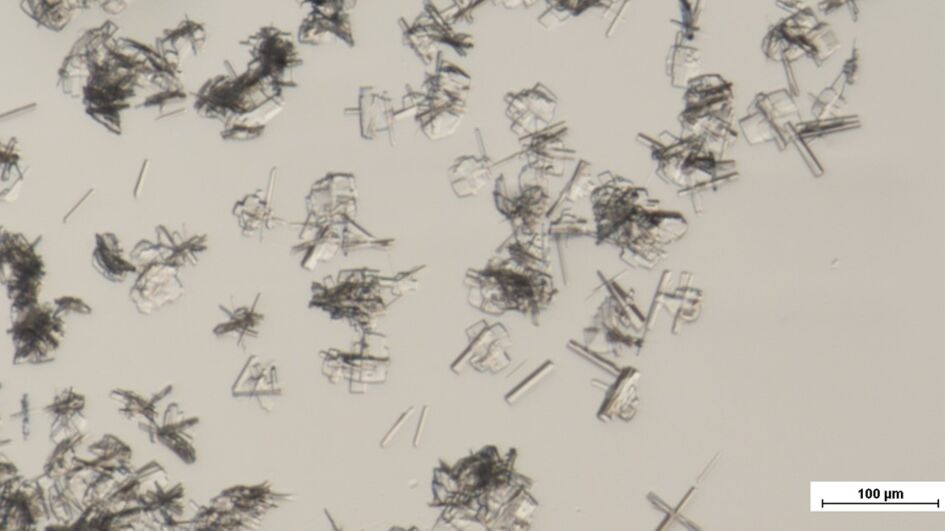
Process design and optimization
By designing and optimizing the production process we can help you obtain the targeted form you need. Particle engineering ensures we achieve controlled and robust manufacturing processes for the drug substance, meeting desired targets and yield.
For process design and optimization we consider:
- Control of particle properties – stirrability/sedimentation time, agglomeration, attrition/breakage
- Bulk properties – bulk density, flowability, compressability/tablettability
- Downstream processibility – filtration time, drying time
- Control of phase transitions – polymorphic transition, salt/co-crystal formation, desolvation/dehydration
|
Drug substance particle engineering capabilities |
Crystallization process development tools and equipment
- Small-scale (2-30 mL parallel systems)
- Solubility determination for phase diagrams by static and dynamic measurement techniques or the metastable zone width (MSZW).
- Solvent and solid form screenings
- Medium-scale (100 – 200 mL parallel systems)
- Crystallization trials: colling and antisolvent addition
- Mechanical stirring
- Scale up
Filtration and centrifugation
- Process feasibility of unfavored shaped particles can be tested before going to production scale
- Filtration cloth selection
- Compressibility of filter cake
- Scale-up from laboratory scale filters and centrifuges to production
Melt crystallization
- Capability to develop processes for substances featuring low melting points
Continuous crystallization
- Mixed suspension mixed product removal (MSMPR) technology at lab and pilot scale
- Evaporation crystallization for development in semi-batch lab scale, and for large scale production fully continuous capabilities in forced circulation crystallizers
Spray drying and freeze drying
- Generation of amorphous particles, control of particle size, encapsulation, heat-sensitive substances
- Capabilities at lab-, pilot- and production scale
Size reduction through milling
- Selection of appropriate milling technology based on:
- Particle size specification
- Energy input
- Temperature control (including cryogenic)
- Throughput requirements
- Containment requirements (OEL of the API)
- All kinds of mills are available at lab and production scale
Analytical tools
The particle engineering laboratory is equipped with state-of-the-art analytical tools, such as in-situ probes for particle tracking (particle size and in-situ imaging directly from suspensions), FTIR (Fourier transform infrared spectroscopy), and Raman. The off-line analytics mostly used are typically optical (hot stage) microscopy and melting point analysis by DSC (Differential Scanning Calorimetry).
Our close collaboration with Evonik’s analytical department gives us access to a broad range of other analytical tools. For each analytical category we get regular input from experts who support with measurements of samples and the interpretation of results.
To find out more about how our particle engineering capabilities and expertise can help you with the development and manufacturing of your pharmaceutical product get in touch with us.

